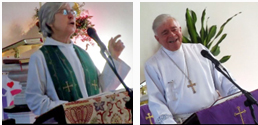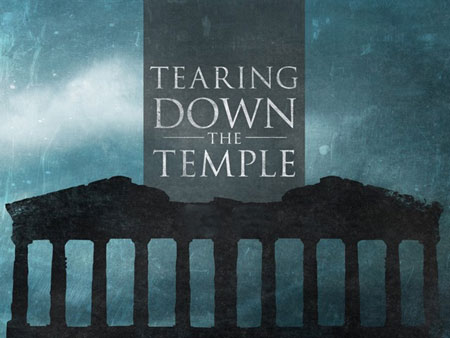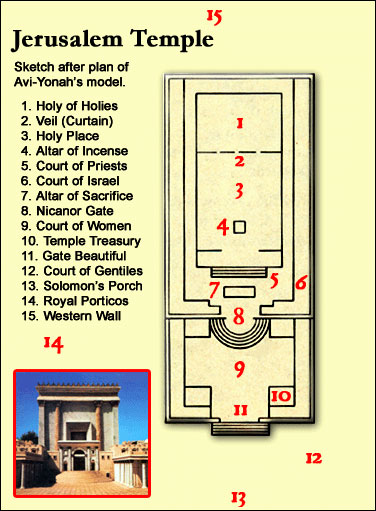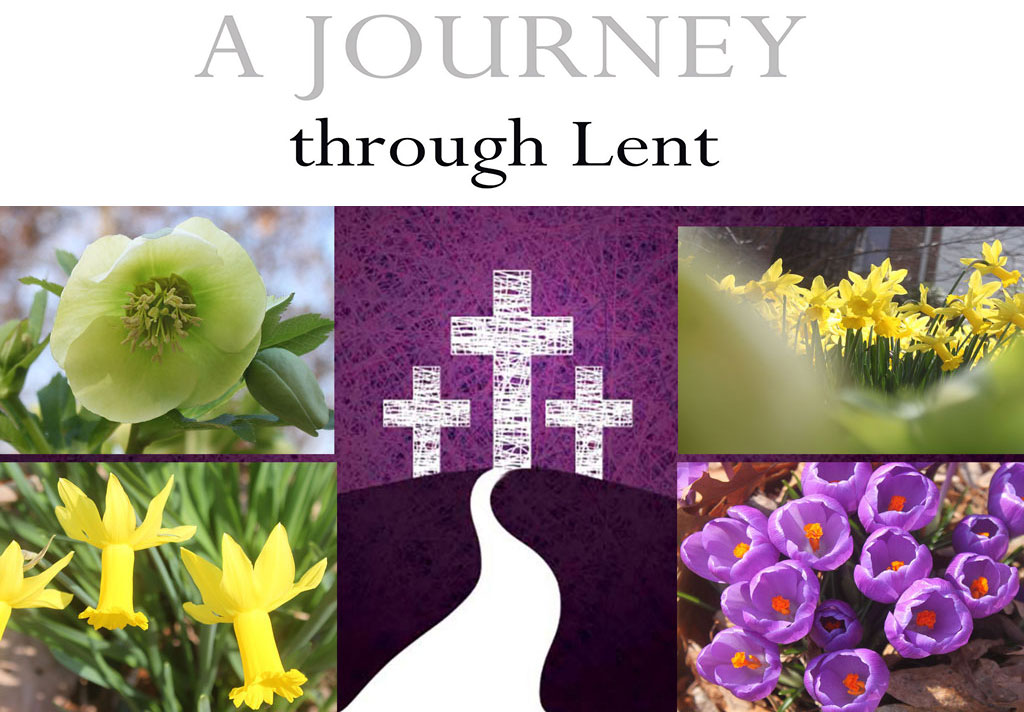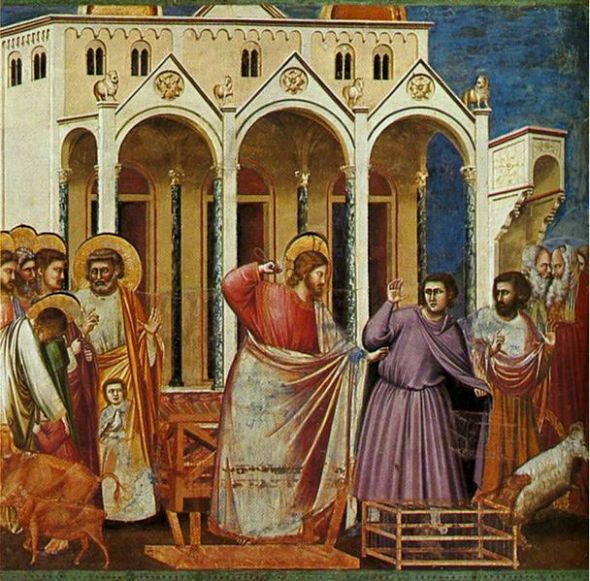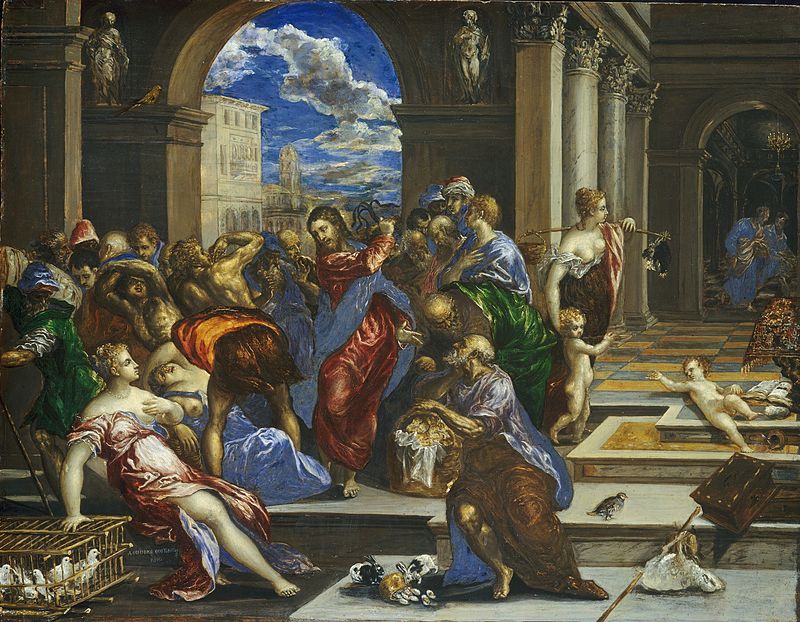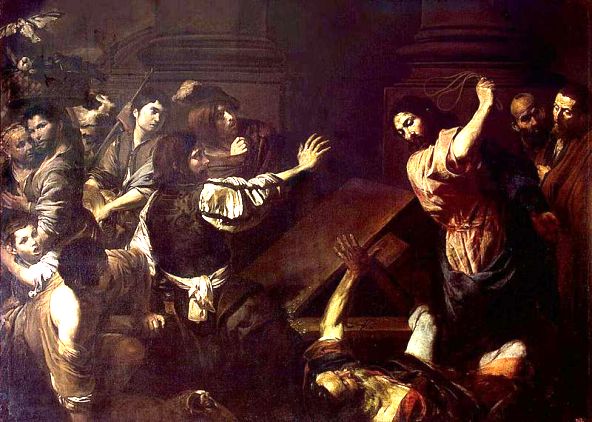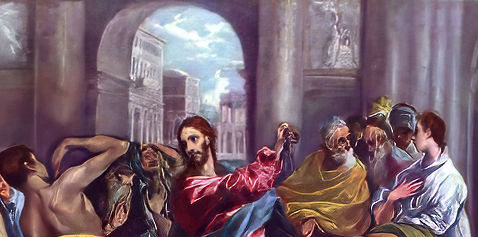I.Theme – Old and new covenants
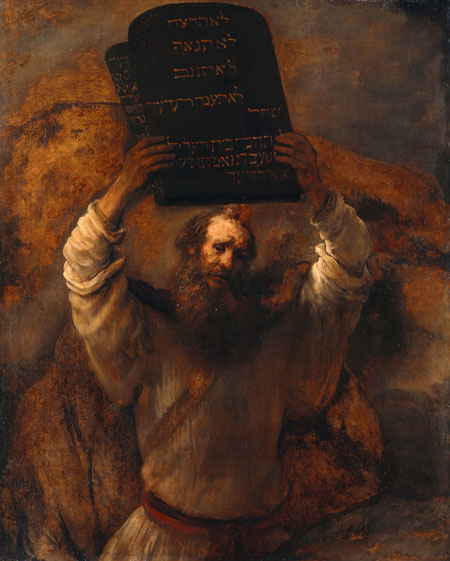
"Moses with the Ten Commandments" – Rembrandt, 1659
The lectionary readings are here or individually:
Old Testament – Exodus 20:1-17
Psalm – Psalm 19 Page 606, BCP
Epistle –1 Corinthians 1:18-25
Gospel – John 2:13-22
Commentary by Rev. Mindi Welton-Mitchell:
We continue to recall the covenants of God with the people, remembering the promises of old. We have remembered the covenants of God with Noah and all of creation, between God and Abraham and Sarah and their family, and now God’s new covenant with the people journeying out of Egypt to be their God in Exodus. God’s covenant requires that the people live in community, and these “ten best ways” (a phrase I borrow from the curriculum Godly Play) are part of that covenant, what the people have to do on their end to uphold the covenant. As we know, the covenant is larger than this, and there are over 600 law codes in Exodus and Leviticus on how the people of Moses’ day were required to live in community with each other, but these ten are the ones that have stood the test of time and have become a part of even our secular society. We remember most of all that to be part of God’s family, we have to be in community with each other.
Psalm 19 is a song of praise about creation and God’s covenant. The writer delights in the law of the Lord–in following God’s law, the psalmist knows he is part of the faithful community, part of God’s family–this is beautiful to the psalmist. The writer desires to be in the company of the faithful to God, and sings the beauty of the laws and ordinances.
John 2:13-22 extends the idea of the faithful community to within and beyond the walls of the Temple. When Jesus enters the temple and sees all sorts of animals being sold for the sacrifices, the temple priests making money off of those coming to exchange for the temple currency, his anger is kindled. In the other three Gospels Jesus turns over the tables, but in John’s Gospel (in which this event happens much earlier, on a first trip to Jerusalem, not the week Jesus is killed as it is in the other Gospels), Jesus makes a whip of cords and drives out the moneychangers and sellers. Jesus desires to end all boundaries to relationship with God. No longer will the poor, who do not have the money for the temple currency or to afford the clean animals for the sacrifice, be turned away, and no longer will those in the temple appear to have special access to God. The temple of God will no longer be in stone, but in Christ, and in our very selves, the body of Christ. No longer will there be arbitrary separation based on human standards, but all who believe will be in relationship with God.
1 Corinthians 1:18-25 is the famous discourse of Paul, that we proclaim Christ crucified. The new covenant in Christ is not written on tablets of stone or seen in a bow in the clouds, but is written in our hearts, as the prophet Jeremiah proclaimed. But more importantly, the new covenant is one in which death is no more. The cross is a stumbling block to those for whom the Messiah was supposed to avoid death. The cross is foolish to those who have had gods defy death. Instead, the cross calls us to put to death the sin within us, and to work to end sin in the world. But death itself is not something to be feared, because death has no power over us. The new covenant is new life–here and to come.
The new covenant, which is emerging in the Lenten passages this season, ends all separation from God. The covenant with Noah and all creation ensures that days and seasons, the passing of years, will never cease. The covenant with Abraham and Sarah promises a family of God that will endure for generations. The covenant with Moses and the people at Sinai ensures a community of faith, the family of God, participation with each other and relationship with God. But Christ calls forth a greater covenant, one in which there are no boundaries that can be drawn on earth or by any power to separate us from God’s love, and that by being the body of Christ, we are the temple for God, that cannot be destroyed because we have the promise of eternal life in Christ.
Read more
